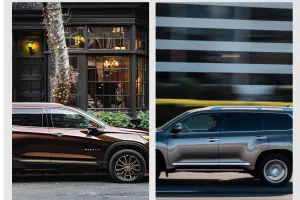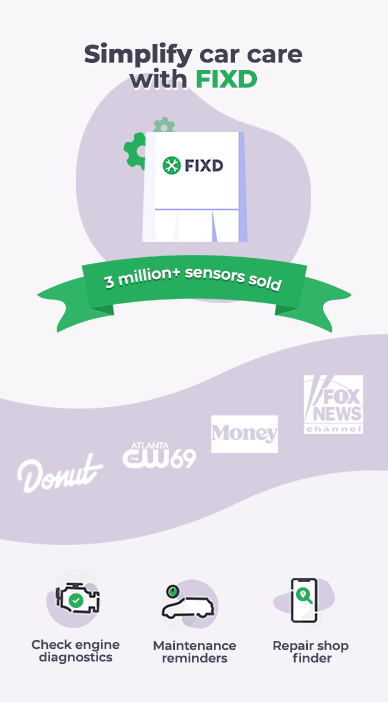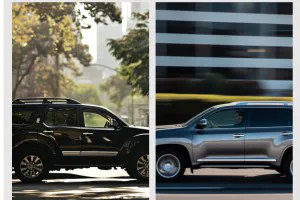If you’re in the market for a new car, you’re probably considering how to pay for it. Unless you pay for the entire cost of the vehicle up front, you’re going to have to take out a loan to finance your purchase. While you can theoretically use a credit card or personal loan to buy a car, chances are you’ll be much better off with a vehicle loan from a bank, car dealership, or a credit union. So, now that we’ve narrowed it down to three choices, what are the advantages and disadvantages of each, and how will you know which one is right for you?
How will an auto loan application affect my credit score?
When you apply for an auto loan, your credit score will usually drop by 5–10 points (don’t worry; it will increase over time as you repay your loan). If you’re shopping for the best deal and fill out multiple auto loan applications in a short period of time (14–45 days), it will only count as a single inquiry on your credit report.
Many borrowers are concerned that shopping around will hurt their credit score. Fortunately, shopping the rate and comparing auto loans causes virtually no harm to your credit, and you may be able to save hundreds or even thousands of dollars.
Should I finance through the car dealership?
Financing your car purchase at the dealership is convenient because it allows you to shop for a car and a loan in one place. Dealers recognize the value of convenience, and if that’s your number one priority, getting an auto loan from your dealer is a great option.
Another benefit of getting your auto loan through the dealership is that they might offer you a rebate if you choose to buy your car and finance it with them. If you’re offered a rebate or any kind of special, just make sure you read the terms and conditions carefully before signing any paperwork.
Borrowers who have below-average credit (the average credit score in the U.S. in 2021 was 698), may also find that the dealership is more willing than a bank or credit union to finance their vehicle purchase. Of course, it will cost you more, but it may still be your best – or perhaps your only option.
Financing through the dealership has some drawbacks that every borrower needs to consider. First, the dealership rarely has the most competitive interest rates. In many cases, the dealer is just a middleman who connects you with their lender partners, either marking up the interest rate and profiting from the difference or earning a commission on your loan.
Finally, car dealerships may have a reputation for using high-pressure sales tactics, and while not all salespeople at dealerships are pushy, you might feel uncomfortable with their style of doing business.
What should you say when the dealership asks about your budget?
When a dealership’s salesperson asks about your budget, avoid giving them a number whenever possible. Giving a budget reduces their incentive to give you a discount. Worse than that, giving a monthly budget allows them to sell you a more expensive car on a longer term, higher interest loan too.
How? Say you tell the dealer you have a budget of up to $45,000. They now know you’re willing to spend $45,000, and therefore have no incentive to offer you a discount on a $45,000 car. The even bigger mistake is sharing your monthly budget with the dealer because they can just sell you a more expensive car that fits your budget by extending the length of the loan. You not only are paying for a more expensive car but, most likely, a higher interest rate that generally comes with a 72 or 84-month term versus the typical 60-month term auto loan.

When to choose dealer financing
Choose dealer financing if your top priority is convenience, if the dealer special is too good to pass up, or if you’re struggling to get approved for a loan at a bank or credit union.
Pros and Cons of Financing Through the Car Dealership
| Pros | Cons |
| Convenience | Higher interest rates |
| Possibility of specials and rebates | Additional fees |
| Negotiating power on your vehicle purchase | Possibility of high-pressure sales tactics |
| Fast, one-stop shopping | The dealership may not be the actual lender |
| More flexible terms and eligibility criteria | Possible rate markups |
Top 10 dealers for auto loans
- Toyota Financial
- Ford
- Nissan Finance
- Infiniti Finance
- Honda Financial Services
- Kia Finance America
- Hyundai Motor Finance
- Acura Financial Services
- Lexus Financial
- GM Financial

Should I finance through a bank?

You may already have an existing relationship with a bank, which could lead you to inquire about what sort of auto loan they can offer you.
Bank auto loans usually have lower interest rates than dealer financing but also tend to have stricter credit requirements. Though there’s no official minimum credit requirements in the industry, most banks will want to see a FICO score of at least 600. If you want to get the best rates, your credit score should be in the mid to high 700s. Banks will also check your debt-to-income ratio and verify your income by asking for pay stubs, bank statements, or both.
Another advantage of bank auto loans is that you can get an auto loan preapproval, even if you don’t yet know which car you want to buy. A preapproval can help get the ball rolling on your new car purchase and give you an idea of how much you can afford and what interest rate you qualify for. Once you have a preapproval, you can easily compare rates from different banks, credit unions and dealerships.
Your bank can be a great place to go for an auto loan, and though they usually have lower interest rates and fewer fees than the dealership, there are other disadvantages you should consider.
Banks tend to have stricter eligibility criteria than dealerships, along with minimum and maximum limits on how much money you can borrow. For example, if you want to borrow less than $7,500 or more than $50,000, some banks might be unwilling to approve your loan regardless of your qualifications.
Another drawback of bank auto loans is that you’re buying a car in one place but financing it from another. Since you have to get the money from your bank into the dealership’s hands, the possibility of delays or confusion are possible with this additional step in the car buying process. In some cases, that delay might even cost you the car you want if the dealer decides to sell it to someone else while you’re getting your financing together.
When to choose bank financing
Head to the bank for your auto loan if you want to work directly with your lender, lock in low interest rates, and aren’t a member of a credit union.
Pros and Cons of Financing Through a Bank
| Pros | Cons |
| Lower interest rates | Stricter eligibility criteria |
| You may already have an existing relationship | Minimum and maximum loan limits |
| The bank is the actual lender | Can take longer than dealer financing |
| Adds an extra step in the car buying process |
Top 10 banks for auto loans
- Bank of America
- Chase
- Truist
- Capital One
- Ally Auto
- Wells Fargo
- Santander
- US Bank
- TD Auto Finance
- PNC Bank
What is the difference between a credit union and a bank?
At first glance, banks and credit unions might look exactly the same. Both banks and credit unions are financial institutions offering checking and savings accounts, credit cards, loans, and other financial services. The difference between a credit union and a bank is that credit unions are not-for-profit and serve a group of members who, collectively, own the credit union. In contrast, banks are for-profit companies that are often publicly traded by investors.
Should I finance through a credit union?
Financing through a credit union is very similar to financing through a bank, though credit unions have a few advantages over banks and a couple of drawbacks. Since credit unions serve a community of members and are not-for-profit, they have even better interest rates, fewer fees, and more flexibility in their auto loan offerings.
Like a bank, you may already have a relationship with a credit union, so you can work with someone you know and trust. Credit unions are also known for providing excellent customer service and personalized solutions for their members.
In addition to the pros of using a credit union for car financing, there are also some cons.
If you want to get vehicle financing from a credit union, you need to become a member of that credit union. Some credit unions, like PenFed, open membership to anyone. Others, such as American Airlines Credit Union, require you or a family member work in the airline industry before you can join.
Many credit unions are small, with limited loan products and few brick-and-mortar locations. If a credit union doesn’t have a local branch in your area, or if you’re looking for a loan product they don’t offer, the credit union can quickly become an inconvenient avenue for financing your car purchase. With any credit union, as with any bank, you’ll have to coordinate with both the credit union and the dealer to ensure the successful transfer of funds to the dealership.
When to choose credit unions
Choose a credit union if you want to take advantage of the lowest rates and enjoy a more personalized customer service experience.
Pros and Cons of Financing Through a Credit Union
| Pros | Cons |
| Lowest interest rates | Requires membership |
| You may already have an existing relationship | May have limited branch locations |
| Lower (or fewer) fees | Can take longer than dealer financing |
| Excellent customer service | Adds an extra step in the car buying process |
| More flexibility than banks | Smaller credit unions may not have as many loan offerings as larger institutions |
Top 10 credit unions for auto loans
- Pentagon Federal Credit Union
- Consumers Credit Union
- Alliant Credit Union
- Navy Federal Credit Union
- NIH Federal Credit Union
- Members 1st Federal Credit Union
- Digital Federal Credit Union (DCU)
- Star One Credit Union
- Randolph Brooks Federal Credit Union
- Golden 1 Federal Credit Union
What is the smartest way to finance a car purchase?
The smartest way to finance a car purchase is by shopping around and choosing the loan that helps you achieve your goals first.
Each financing option comes with its own set of pros and cons; there’s simply no one-size-fits-all approach.
When you’re looking to finance the purchase of a new or used car, the smartest thing to do is explore your options, compare rates, and carefully read the terms and conditions of each loan.
FAQs
Are banks or dealerships better for financing?
Choosing between a bank or dealership for your auto loan comes down to personal preference. If you’re looking for the most convenient option or can’t qualify for a bank loan, head to the dealership for financing. If you’re after a lower interest rate and fewer fees, the bank is likely your best choice.
How do banks and credit unions differ from dealer financing?
The main difference between auto loans from banks and credit unions compared with dealer financing is that banks and credit unions don’t sell cars. Banks and credit unions specialize in loaning money to their customers and members and generally have much lower interest rates than dealerships. Dealerships, on the other hand, often don’t finance auto loans directly. Instead, they connect customers with financing from lender partners who may pay them a commission or fee.
Why does the dealership want you to finance your car with them?
The dealership wants you to finance your car with them because it benefits them financially. Dealers sometimes earn a commission or fee when they connect you with third-party lenders. If they’re financing the loan in-house (aka buy here, pay here), they’ll already have your down payment as a sort of security deposit, and will collect interest as you pay back the loan.
What is the best way to finance a vehicle purchase?
The best way to finance a vehicle purchase depends on your goals. For many individuals, the auto loan with the lowest interest rate is the best way to finance a vehicle purchase, so banks and credit unions are the top choices. For others, convenience and flexibility might influence their decision about how to finance their car, leading them to the dealership for seamless one-stop shopping.
What is considered a good interest rate on a car loan?
In general, 60-month auto loans from commercial banks have averaged from 4.05%–5.50% over the last decade. Historically, those rates are considered low, and it’s important to remember that if you opt for a 72-month or 84-month loan, you’ll pay more interest than you would on a 60-month loan.
A good interest rate on a car loan is a rate that you’re happy with and can afford. Auto loan rates are based on interest rates, the age and price of the vehicle you purchase, your individual creditworthiness, and other factors.
What is the average car payment?
As of June 2022, new car buyers took out car loans averaging $38,044, costing roughly $700 per month.
References
- Colestock, S. (2021, October 18). Rebates on cars: How do they work? Credit Karma.
- Consumer Financial Protection Bureau. What effect will shopping for an auto loan have on my credit? (2020, September 9).
- Consumer Financial Protection Bureau. (2016, November 16). What is the difference between dealer-arranged and bank financing?
- Credit Union of Southern California. (n.d.). How much will a car loan hurt my credit score.
- National Credit Union Administration. (n.d.). How is a credit union different than a bank?
- Equifax. (2021, February). What’s the average credit score in each state?
- Federal Reserve Economic Data | FRED | St. Louis Fed. (2022, October 7). Finance rate on consumer installment loans at commercial banks, new autos 60 month loan.
- Federal Reserve Economic Data | FRED | St. Louis Fed. (2022, September 8). Average amount financed for new car loans at finance companies.

Jonathan is a writer with over 10 years of experience and a former insurance agent. Jonathan’s focus is to simplify personal finance and help equip you with the tools you need to make smart financial decisions. Despite the criticisms, he remains committed to driving a manual transmission and prides himself on smooth shifting, even in rush-hour traffic.













